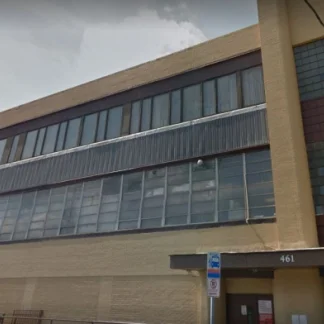New Hope Behavioral Health Center
Situated in Irvington, New Jersey, New Hope Behavioral Health Center is a drug a...
The Lennard Clinic stands as a CARF-accredited substance abuse rehab center in Newark, NJ for men and women. Staff at The Lennard Clinic works to help clients develop coping skills, combining behavioral therapies with medication.
The Lennard Clinic underscores its commitment to providing individualized, client-centric care, ensuring that every person seeking treatment is met with a tailored approach.
The Lennard Clinic’s intensive outpatient program (IOP) provides clients with rigorous therapeutic sessions while allowing them to maintain their daily commitments. Through individual and group sessions, participants engage in skill-building, relapse prevention, and therapeutic interventions tailored to their unique needs.
The Lennard Clinic specializes in medication-assisted treatment (MAT). It is an evidence-based approach that combines FDA-approved medications, such as methadone and buprenorphine, with counseling and behavioral therapies. This combination assists individuals in managing opioid cravings and withdrawal symptoms.
For those with co-occurring mental health challenges, The Lennard Clinic offers specialized interventions. Recognizing the intricate link between substance abuse and mental health, the clinic ensures that both areas are addressed in tandem, optimizing the chances of successful recovery.
As a core component of their services, The Lennard Clinic offers methadone maintenance treatment (MMT). This evidence-based program utilizes methadone to reduce opioid cravings and withdrawal symptoms, fostering sustained recovery for those battling opioid addiction.
Collaborating with the legal system, The Lennard Clinic offers a Drug Court program. This initiative provides individuals with an alternative to incarceration, allowing them to undergo treatment and rehabilitation in lieu of serving time.
The Lennard Clinic offers specialized care to pregnant women. They offer dedicated services that cater to the unique needs of expectant mothers, ensuring both the mother’s and baby’s well-being.
The Lennard Clinic’s case management services ensure that clients are connected to vital resources, from housing to employment. And, when more specialized care is required, their robust referral system guarantees that clients can access the necessary services.
Contact us for more information: (973) 596-2850

Connect with The Lennard Clinic by calling their admissions team directly.
(973) 596-2850 Website Get DirectionsThe Commission on Accreditation of Rehabilitation Facilities (CARF) is a non-profit organization that specifically accredits rehab organizations. Founded in 1966, CARF's, mission is to help service providers like rehab facilities maintain high standards of care.
CARF Accreditation: Yes
The Substance Abuse and Mental Health Services Administration (SAMHSA) is a branch of the U.S. Department of Health and Human Services. Established in 1992 by congress, SAMHSA's mission is to reduce the impact of substance abuse and mental illness on American's communities.
SAMHSA Listed: Yes
Group therapy is any therapeutic work that happens in a group (not one-on-one). There are a number of different group therapy modalities, including support groups, experiential therapy, psycho-education, and more. Group therapy involves treatment as well as processing interaction between group members.
In individual therapy, a patient meets one-on-one with a trained psychologist or counselor. Therapy is a pivotal part of effective substance abuse treatment, as it often covers root causes of addiction, including challenges faced by the patient in their social, family, and work/school life.
In individual therapy, a patient meets one-on-one with a trained psychologist or counselor. Therapy is a pivotal part of effective substance abuse treatment, as it often covers root causes of addiction, including challenges faced by the patient in their social, family, and work/school life.
Situated in Irvington, New Jersey, New Hope Behavioral Health Center is a drug a...
Integrity House provides intensive outpatient and outpatient treatment for subst...
Elizabeth VA Outpatient Clinic provides Mental Health Services in an outpatient ...
Trinitas Regional Medical Center is a dual diagnosis, drug, and alcohol rehab fa...